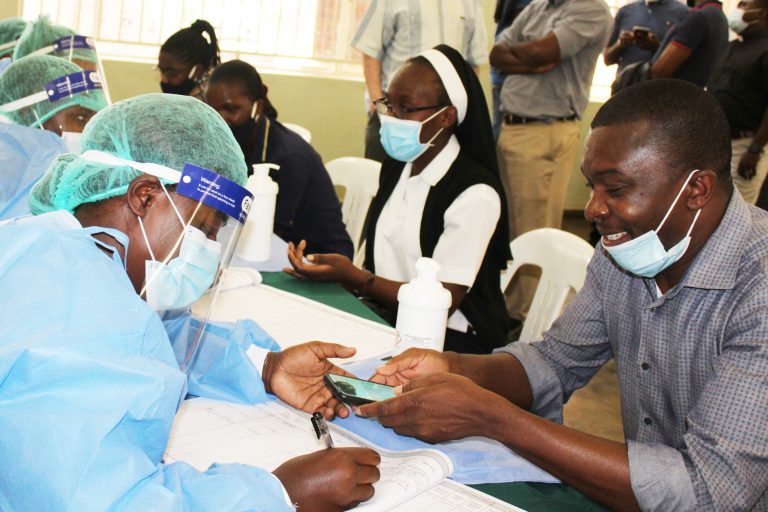ZIMBABWE: ‘Just in time’

More than 1,200 pastoral workers in Zimbabwe have received personal protective equipment (PPE) in the nick of time after the country went into COVID lockdown amid a vaccine shortage and spiralling deaths.
Aid to the Church in Need (ACN) provided the help to the country which has declared a lockdown after the authorities introduced a dawn-to-dusk curfew, a ban on inter-city travel, a cut in business hours and companies required to only employ 40 percent of their employees.
Ulrich Kny, ACN’s head of project department section for Zimbabwe, said: “As the Archbishop of Bulawayo recently informed us, our help arrived just in time before the third wave.
“In many African countries, medical care is completely inadequate. Malaria, AIDS, cholera, and other diseases are very widespread. If a pandemic like COVID-19 is added to this mix, disaster is inevitable.
“And such a catastrophe was looming in some southern African countries at the beginning of the year, when the second wave of the pandemic, due to the spread of the South African mutant of the virus, assumed increasingly devastating proportions and claimed more and more lives – including bishops, priests, religious Sisters, catechists and other lay church workers.”
Between 29th June and 12th July, the southern African nation saw 23,142 new infections and 487 deaths, according to latest reports and on Tuesday (13th July), the Government extended the country’s lockdown by two weeks.
ACN provided PPE for pastoral workers in seven out of eight dioceses and supported an initiative that helped married couples during the pandemic.
Bishop Rudolf Nyandoro of Gweru wrote to ACN asking for help as “a significant number of priests and Religious [are] testing positive” and that many pastoral workers “had to rely on oxygen for some days as they were treated in hospital”.
In the diocese of Masvingo, ACN provided funds for PPE for 142 pastoral workers who minister in the diocese which is 70,000 square kilometres, twice the size of Belgium.
In Chinhoyi, 15 parishes out of 21 are rural which means hospitals are far away and serious cases are difficult to transfer, further compounded by rising infections as COVID-19 cases are not separated from others.
Mr Kny said: “It was clear to me: in order for the local churches to be able to maintain their pastoral work, we had to help…
“The priests and religious Sisters can only continue to visit the sick, dying and needy, those who are especially dependent on spiritual assistance in the loneliness of the lockdown, if they themselves are adequately protected”.
